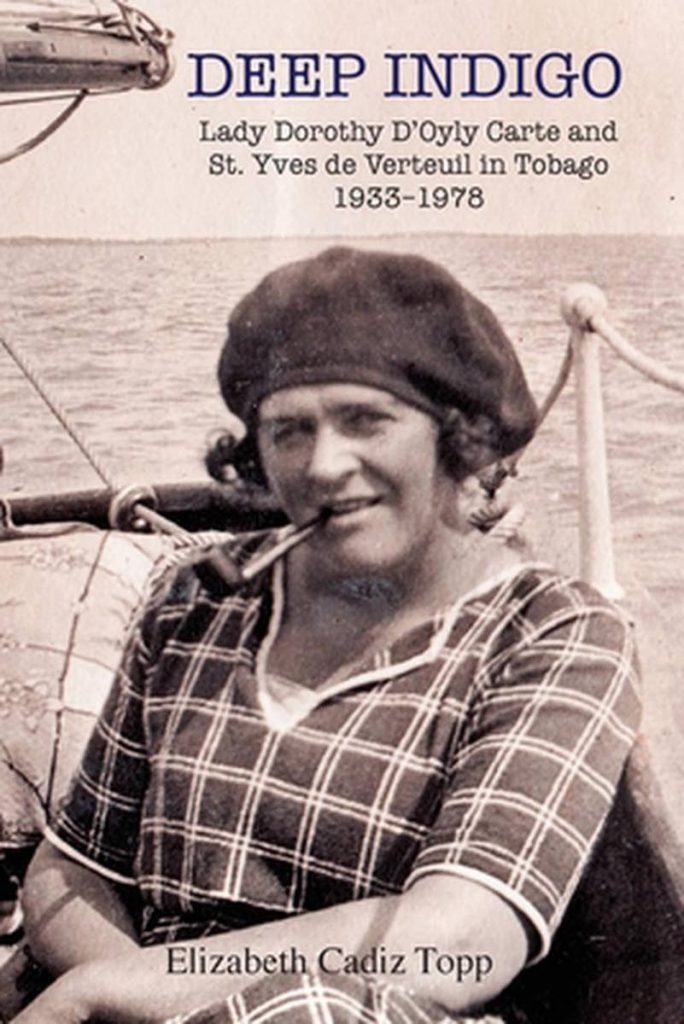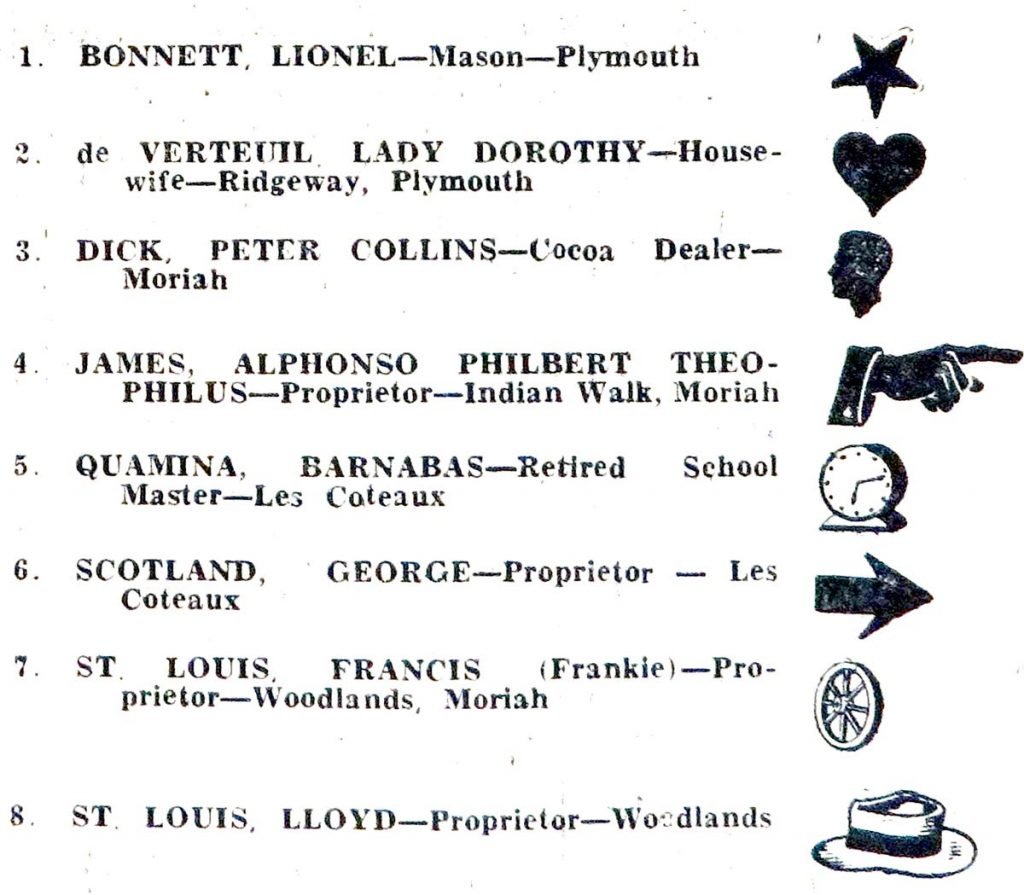The politician and the housewife: when APT James met his match

Elizabeth Cadiz Topp
In the annals of elections in Tobago, there is perhaps no stranger story than the contest 67 years ago between one of the island's most outstanding and popular citizens, the legendary APT James, and an unknown middle-aged housewife from Plymouth.
They were both on the slate for the Parish of St David's 1953 county council elections. In the list of candidates posted all over the parish, Lady Dorothy's mark was a heart, while that of Alphonso Philbert Theophilus James, proprietor, of Indian Walk, Moriah, was a large hand with a pointing index finger.
These county council elections were held all over TT for only the second time, a milestone in what would be a slow journey from crown-colony status towards full independence.
And to everyone's amazement, the neophyte housewife won the election with 809 votes to James' 600, the most votes cast for any candidate in Tobago.
The Port of Spain Gazette reported that “'the applause was prolonged when the name of Lady Dorothy de Verteuil was announced” on Tuesday, February 2, in the Warden's Office in Scarborough.
“Her victory is all the more remarkable as she had no committee to assist her. It is believed that she received strong support from the women voters.”
Who was this unknown candidate who took on the powerful and popular APT, the Apollo Creed to her Rocky Balboa, the Goliath to her David?

Tall, dark-haired and “handsome,” as women of that time were often described, Lady Dorothy was a relative newcomer, having moved to Tobago from England shortly before the outbreak of the Second World War. She built a solid and simple bungalow on a hill above Plymouth, and her growing roots and commitment to her adopted island were strengthened by her marriage a few years later, in 1942, to a Trinidadian, St Yves de Verteuil, MBE, a retired warden. She and St Yves entered into a life of public service in St David's, raising funds for a community centre in Plymouth, the first in the island, and involving themselves in a myriad local causes.
She had learned these skills in her native England, where her aristocratic family held positions of high status and political power. Her grandfather was the first Lord Cranbrooke, a Tory politician of considerable sway, and a confidante of Queen Victoria. Her father, John Stewart Gathorne-Hardy, became Lord Cranbrooke in turn, and so Dorothy, from early youth, was granted the courtesy title of “Lady.” She was first married to the very rich and well connected Rupert D'Oyly Carte, owner of The Savoy, one of London's premier hotels, and the proprietor of the legendary D'Oyly Carte Opera Company, famous for its Gilbert and Sullivan comic operas.
During her years in England, Lady Dorothy was well-known for her volunteer charity work, heading up organizations, sitting on committees, making speeches and being often in the public eye.
Lady Dorothy became equally well known in Plymouth. She was seen almost daily driving around the town, stopping to talk, listening to people's problems, looking after the welfare of needy children, driving the sick at night five miles over the hills to the Scarborough hospital, arranging and organising and making phone calls to those in power who realised that Lady Dorothy de Verteuil was someone whose calls you took, and who could not be ignored. She spoke like an English aristocrat ( “All one can say is that one will do one's best”) with a cut-glass accent that today would be derided as “posh.”
But she had the reputation of always acting with honour, kindliness and generosity, and she and St Yves were popular and deeply respected by the people of St David.
In fact, Lady Dorothy was a true pioneer, entering the political arena when very few women would do so, particularly women of her background and complexion. There was only one other woman elected that year in Tobago, Pearl Bailey, a milliner from the Parish of St Paul. Lady Dorothy and Pearl were breaking the ground that culminated in the 2010 election of TT’s first female prime minister, Kamla Persad-Bissessar.
Lady Dorothy did not run for election again, choosing instead to continue her charity work on the side, while caring for her older and ailing husband. He died at 88 in 1963. Dorothy outlived him by 14 years, and died also at the age of 88.
She lies in a simple and easily overlooked grave, the etched letters fading, in the public cemetery in Plymouth, overlooking the sea, and overlooked by the community centre that she was instrumental in having built.
Tour guides pull up in their vans, telling their guests the fascinating history of Plymouth, with its raft of European colonisers, but with no mention of this woman who made life better for so many in the surrounding community, and who, by her example, opened up the world of electoral politics for many women coming after her.
Elizabeth Cadiz Topp is the author of Deep Indigo: Lady Dorothy D'Oyly Carte and St Yves de Verteuil in Tobago, 1933-1978, published in 2019, and available on amazon.com and at the Paper Based Bookshop, Hotel Normandie, Port of Spain.

Comments
"The politician and the housewife: when APT James met his match"